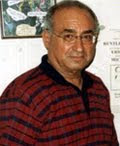Between Professor Ruby Cohn and myself there was an internet correspondence for one year during which I used to write her about ten letters per week, and she would respond briefly and succinctly, sometimes with a phrase or even a single word, and not to all the letters. Of course, this is natural and normal, for her being the eminent scholar that she is and I the upstart anonymous Beckett fan that I am, I didn't expect her to respond to me at all. It is usually the protege who follows after the mentor as we find in what happened between Gorky and Chekhov, and the result was Gorky's elaborate, vivid and highly literary and intellectual letters against Chekhov's brief and dull letters, not that Gorky was suprerior to Chekhov, quite on the contrary, Chekhov to Gorky was like Joseph Conrad to W Somerset Maugham, but as I said it is the protege who follows after the mentor. This is what happened bewteen you and me, Sir, when I wrote you an email on a Beckett topic two months ago, and you haven't replied. After all, you are Chekhov, and I am Gorky, and so I shouldn't expect any reply from you even when the subject is Beckett who is your very cup of tea, I still, nonethless, remain, Sir,
Basing on the above, enclosed herewith please find a draft of My Letters About Samuel Beckett to Ruby Cohn, by Arab of Beckettia which I intend to have published as a book shortly. In case you choose, Sir, to feedback your opinion and tips, or give me a piece of your mind or just remain silent, please do so on this email address
Thanking you very much, I remain
Sincerely
Siddeek Bakr Tawfeek
Arab of Beckettia
